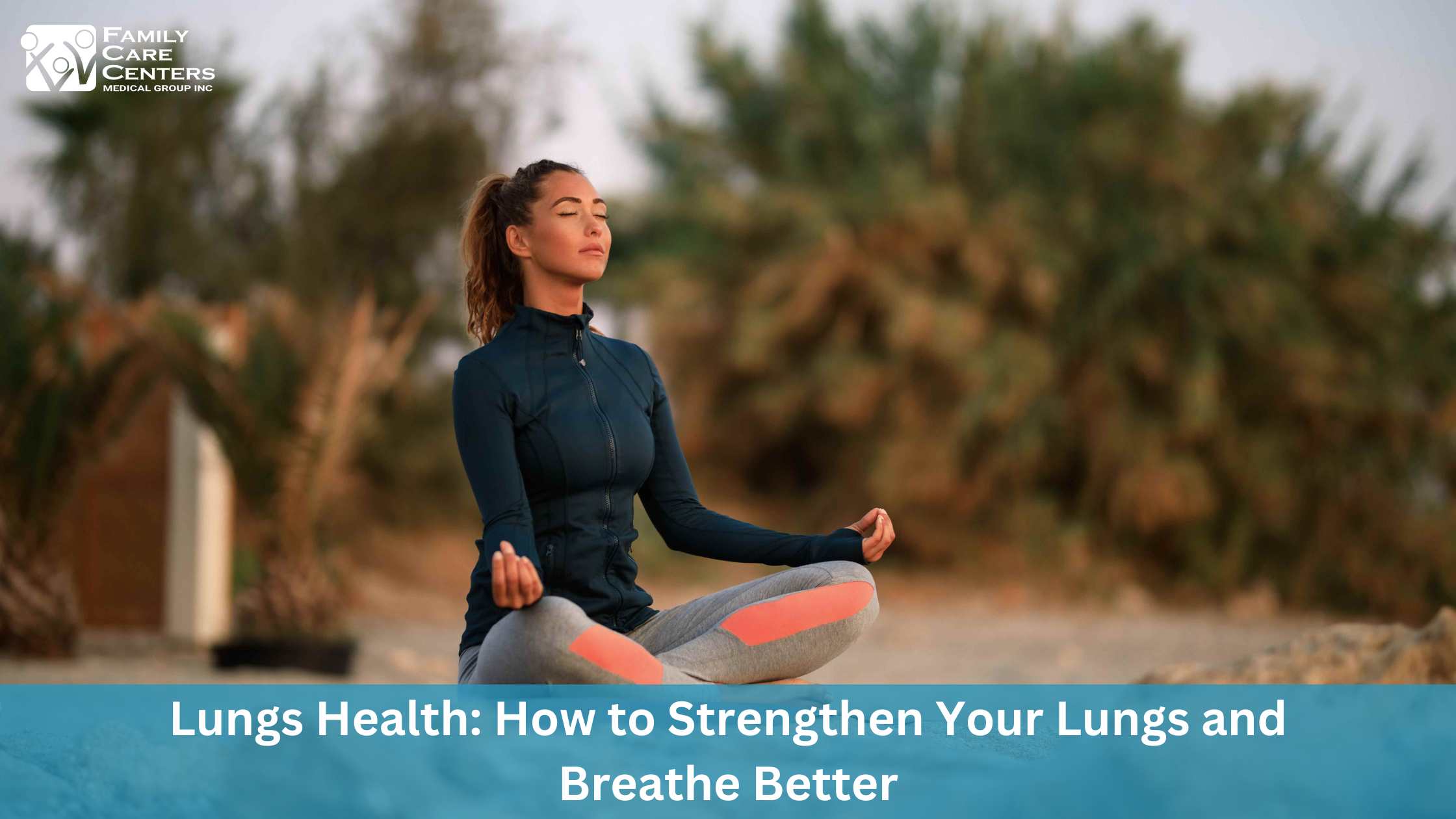

Fountain Valley Urgent Care Permanently Closed. We’re Here to Care for You at Our Other Locations.

Irvine Woodbridge Walk-in Urgent CareBreathing — and by extension, the health of your lungs — is crucial to your well-being. Try holding your breath for a few seconds and you’ll quickly understand why. However, most people don’t think about their lungs until they experience a breathing problem. Lifestyle, genetics, and the environment can impact the strength and function of your lungs, resulting in lung diseases. The American Lung Association reports that over 34 million Americans suffer from chronic lung conditions, such as COPD, asthma, emphysema, and bronchitis.
These diseases not only cause breathing issues but also affect everyday activities and your overall quality of life. Nonetheless, you can improve your lung function with simple breathing exercises.
Every organ in your body needs oxygen. Proper breathing ensures your organs are getting the oxygen they need to function well. Practicing conscious, health-centric breath control can better manage the autonomic nervous system, which controls heart rate, blood pressure, digestion, and emotional states.
When you have a problem regulating your carbon dioxide and oxygen levels, you can feel congested, suffocated, or short of breath. It’s not unusual to feel breathless if you are obese, overheated, at high altitudes, or do strenuous exercise. However, breathlessness from other causes can be a sign of health issues.
Common problems can include:
Our lungs are naturally springy, like fresh sponges. Breathing is easy for those with healthy lungs. However, COPD and asthma patients’ lungs lose their natural elasticity and fail to contract fully on a relaxed exhale, causing retained air in the chest. This leaves less room for the next inhalation and exhalation, which can impair the proper movement of both oxygen and carbon dioxide during the breathing cycle.
Breathing exercises can teach you to use your breathing muscles more efficiently, to help compensate for the loss in normal lung function.
Also known as belly breathing, diaphragmatic breathing can help increase the depth of each inhalation and exhalation and strengthen the main respiratory muscles.
To do this:
For those with chronic lung conditions like asthma and emphysema, exhaling against mild resistance can help narrowed airways stay open for longer, allowing air to flow easier on the inhale.
To do this:
This can help increase your chest capacity.
To do this:
Mostly, we don’t mind our posture while sitting/standing, but it is important for our lungs. If you sit slouched, your breathing muscles cannot move fully and your chest starts from a compressed state, resulting in compromised breathing. So, be mindful of your posture to improve breathing, such as sitting upright and standing leaning back on a wall.
Drinking enough fluids helps keep your lungs’ mucous thin instead of thick, pasty, and congested.
The outside air may have pollens and pollutants, which can irritate your airways. Consider modifying your outdoor exercise sessions if near high-traffic areas or on poor air quality days; when indoors, consider using HEPA air filters to improve your indoor air quality.
Humidifiers release steam or water vapor to increase humidity (moisture) in the air. Dry air can trigger airway irritation in people suffering from allergies, asthma, colds, or chest congestion.
Moderately intense exercises like biking and walking can help expand your lung capacity and strengthen breathing muscles; work towards exercising at least 30 minutes daily.
If you or your loved one is having breathing difficulties, visit one of our urgent care centers in Irvine Woodbridge Walk-In Urgent Care, Fountain Valley Urgent Care, or Costa Mesa Urgent Care today for proper diagnosis and treatment. We are committed to offering prompt and high-quality medical assistance seven days a week.